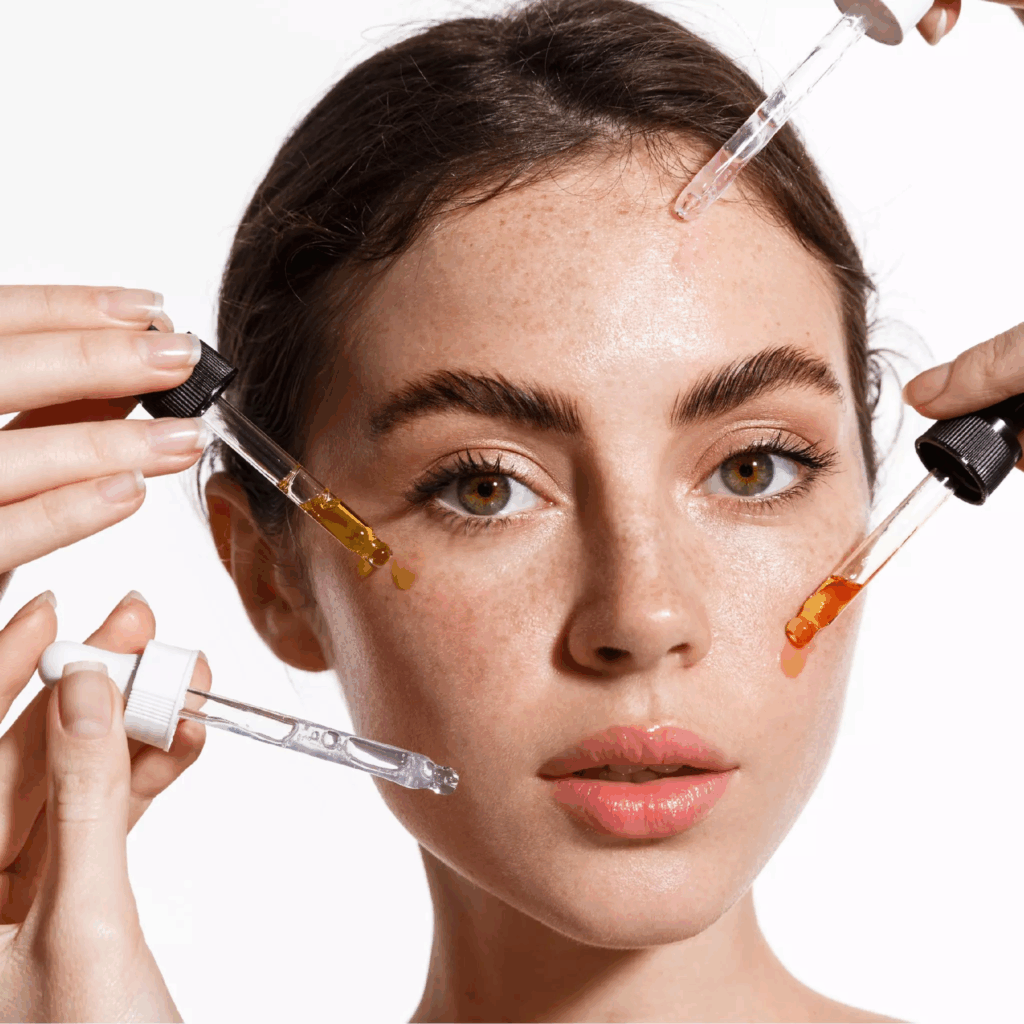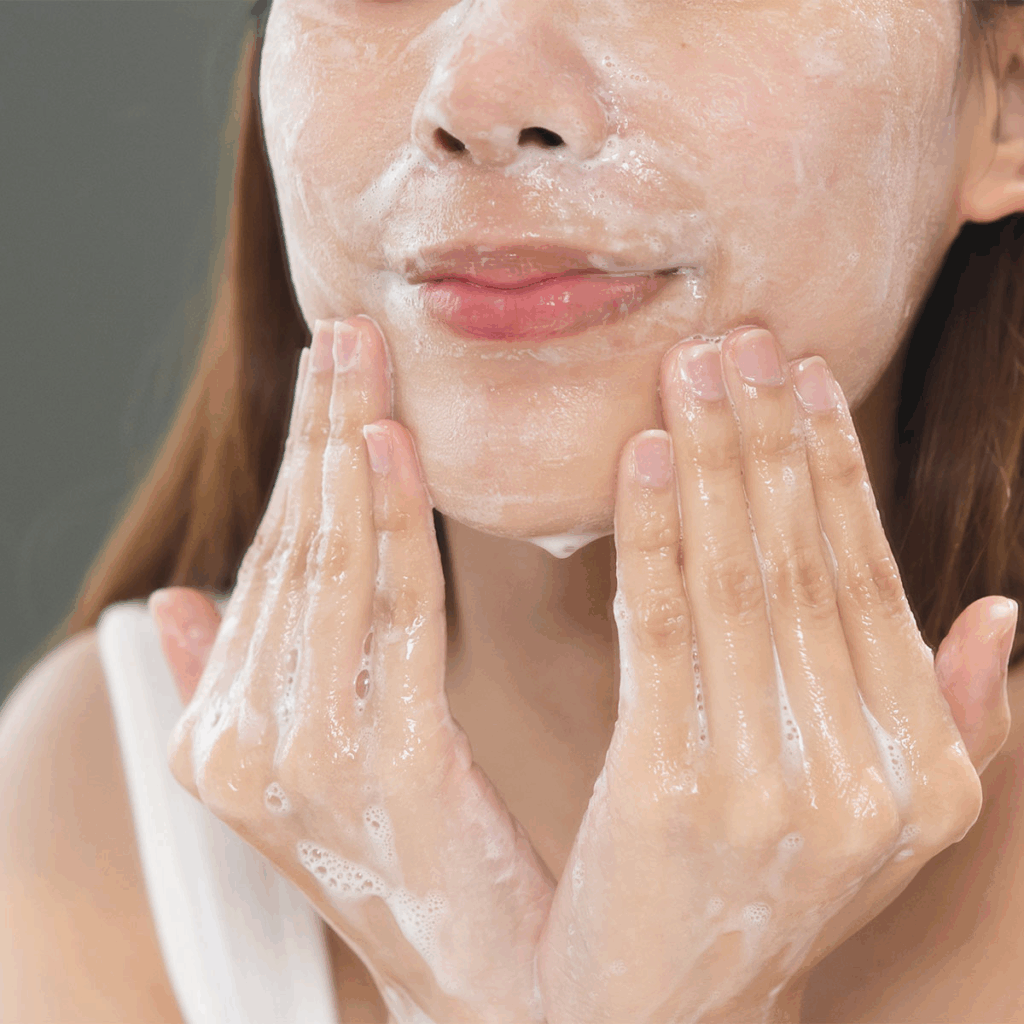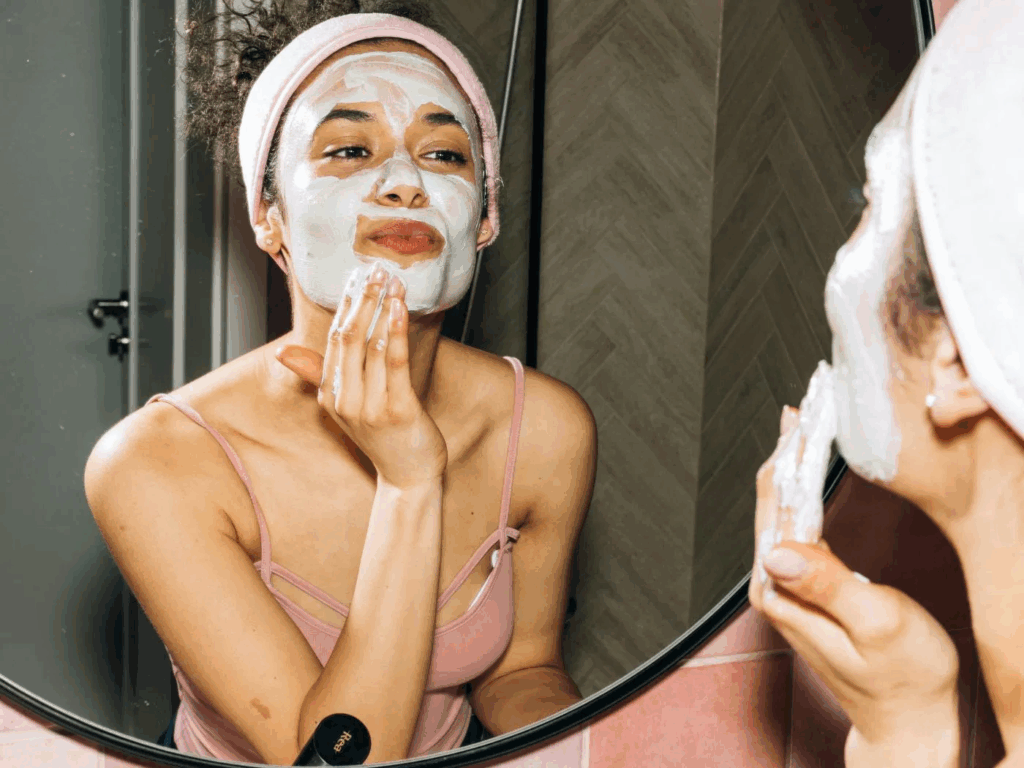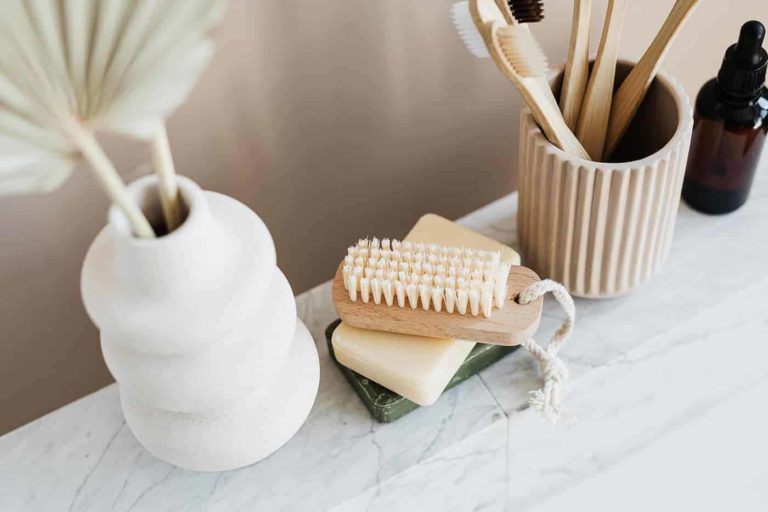When it comes to healthy, glowing skin, consistency is everything.
A skincare routine isn’t just about vanity; it’s about taking care of your body’s largest organ.
For beginners, the world of skincare can feel overwhelming, but the truth is, you don’t need 12 steps or expensive serums to start. A simple, structured, and consistent skincare routine can work wonders for your skin already.
Based on years of my own experience, I will walk you through the ultimate beginners skincare routine, breaking it down step by step.
By the end, you’ll know exactly how to start, which products to choose, and how to avoid common skincare mistakes.
Understand Your Skin Type for your Skincare Routine
Before buying products or following a trend, the first step is to identify your skin type. Your skin type determines which products will benefit you the most! Don’t blindly just follow what an Instagram influencer told you to get, do your own research.
Normal Skin – Balanced oil production, smooth texture, and minimal concerns. Easy to maintain.
Oily Skin – Prone to shine, enlarged pores, and breakouts due to excess sebum production.
Dry Skin – Feels tight, flaky, or rough. Lacks natural oils and often looks dull.
Combination Skin – A mix of oily areas (usually the T-zone) and dry patches.
Sensitive Skin – Easily irritated, prone to redness, burning, or itching. Needs gentle care.
Knowing your skin type makes product selection much easier and helps avoid irritation.
Skincare Basics Every Beginner Should Know
Consistency!!
Results won’t happen overnight. Consistency is key; you’ll need at least 4–6 weeks of regular use to see improvements and you need to keep going as well. All those people with pretty skins with almost pore-less texture and don’t do any skincare are exceptions, that’s the hard truth, some people are just blessed with good genes and hormonal balance. You’re not alone to feel like life is unfair, you’re one of the many many people who need help so dearly because they were just born that way, stay consistent.
There is a morning and night skincare routine
- Morning routine: Focuses on protection (sunscreen, hydration).
- Night routine: Focuses on repair (cleansing, nourishing, and treatments).
Avoid at all costs:
- Using too many products at once
- Skipping sunscreen
- Over-exfoliating
- Not patch-testing new products
A beginner’s skincare routine (4 Ingredients):

A beginner’s skincare routine doesn’t need to be complicated; you just need four key ingredients which can lay the foundation for healthy, glowing skin.
Step 1: Cleansing – The Foundation

Cleansing removes dirt, oil, and impurities, giving you a fresh base.
Choosing the Right Cleanser for Your Skin Type
- Oily skin → Gel or foaming cleansers
- Dry skin → Cream or hydrating cleansers
- Sensitive skin → Fragrance-free, gentle cleansers
How Often Should You Cleanse?
- Twice daily (morning and night) is ideal.
- If you have very dry or sensitive skin, cleansing once at night may be enough.
Recommended Cleansers:
- CeraVe Foaming Facial Cleanser (best for oily skin)
- CeraVe Hydrating Cleanser (ideal for dry skin)
- La Roche-Posay Toleriane Hydrating Gentle Cleanser (great for dry and sensitive skin)
- Vanicream Gentle Facial Cleanser (perfect for sensitive skin)
Step 2: Toning – For Balancing and Refreshing

Toners prep your skin for better absorption of products.
Benefits of Toners in a Skincare Routine
- Restores pH balance
- Hydrates and soothes skin
- Minimizes the appearance of pores
Alcohol-Free vs. Exfoliating Toners
- Alcohol-free toners → Hydrating and gentle, best for beginners.
- Exfoliating toners (with AHAs/BHAs) → Good for acne-prone or dull skin but use sparingly.
Recommended Toners:
- Thayers Alcohol-Free Witch Hazel Toner (hydrating and soothing)
- KLAIRS Supple Preparation Unscented Toner (gentle and fragrance-free)
- COSRX AHA/BHA Clarifying Treatment Toner (light exfoliation, great for acne-prone skin)
- Paula’s Choice Skin Recovery Toner (rich, hydrating option for dry skin)
Step 3: Moisturizing – Locking in that Hydration

Moisturizers are non-negotiable, even for oily skin.
Gel-Based vs. Cream-Based Moisturizers
- Gel-based → Lightweight, great for oily and combination skin.
- Cream-based → Rich and nourishing, perfect for dry or mature skin.
Key Ingredients to Look For
- Hyaluronic acid → Boosts hydration
- Ceramides → Strengthens skin barrier
- Niacinamide → Brightens and reduces redness
Recommended Moisturizers:
- CeraVe Daily Moisturizing Lotion (lightweight, works for most skin types)
- Neutrogena Hydro Boost Water Gel (popular gel-based formula for oily skin)
- Paula’s Choice Invisible-Finish Moisture Gel (hydrating with niacinamide)
- First Aid Beauty Ultra Repair Cream (rich option for dry or sensitive skin)
12 Hydrating Moisturizers for Acne Scars and Dry Skin is another article of ours that cover the best moisturizers as well.
Step 4: Sun Protection – Most Important Than You Think

If you do nothing else, wear sunscreen!
Why?
- Prevents premature aging
- Protects against sunburn and skin cancer
- Prevents pigmentation and acne scars from darkening
Choosing the Best Sunscreen for Beginners
- SPF 30 or higher
- Broad spectrum (UVA + UVB protection)
- Lightweight and non-greasy formula
Recommended Sunscreens:
- EltaMD UV Clear Broad-Spectrum SPF 46 (lightweight, great for acne-prone skin)
- La Roche-Posay Anthelios Melt-in Milk Sunscreen SPF 60 (hydrating, dermatologist-favorite)
- Neutrogena Hydro Boost Water Gel Lotion SPF 50 (lightweight, budget-friendly)
- Supergoop! Unseen Sunscreen SPF 40 (invisible finish, works well under makeup)
Morning Skincare Routine (In Order)
- Cleanser
- Toner/
- Moisturizer
- Sunscreen
(Optional: Vitamin C serum before moisturizer)
Night Skincare Routine (In Order)
- Cleanser
- Toner
- Serum (e.g., Niacinamide or Hyaluronic Acid)
- Moisturizer
(Optional: Retinol 2–3 nights per week if your skin tolerates it)
Optional Add-Ons for Beginners
Once you’re comfortable with the basics, you can add targeted treatments.

Serums
- Vitamin C → Brightens skin tone
- Niacinamide → Reduces oil and redness
- Hyaluronic Acid → Deep hydration
Exfoliation
- AHAs (glycolic, lactic acid) → Exfoliate surface dead skin cells
- BHAs (salicylic acid) → Penetrate pores and fight acne
- Use 1–2 times per week to avoid irritation.
Face Masks
- Hydrating masks for dry skin
- Clay masks for oily skin
- Sheet masks for a quick boost
Lifestyle Tips (more important than you think)

Diet and Hydration
Eat antioxidant-rich foods (berries, leafy greens) and drink enough water daily.
Sleep and Stress Management
Poor sleep and high stress trigger breakouts and dullness. Aim for 7–8 hours.
Exercise and Skin Health
Regular movement improves circulation, giving your skin a natural glow.
Skincare Mistakes Beginners Should Avoid
Over-Exfoliating or Over-Cleansing
Strips your skin barrier, causing irritation and breakouts.
Using Too Many Products at Once
Stick to 3–4 core products before experimenting.
Not Wearing Sunscreen Indoors
UV rays penetrate windows and screens—sunscreen is still essential.
Frequently Asked Questions (FAQs)
1. How many skincare products should beginners use?
Start with 3 basics: cleanser, moisturizer, sunscreen. Add extras later.
2. Do I really need sunscreen if I stay indoors?
Yes—UV rays still penetrate windows and can cause damage.
3. How long before I see results from my skincare routine?
Usually 4–6 weeks of consistent use.
4. Can I mix Vitamin C and Retinol?
Not recommended for beginners—use Vitamin C in the morning, Retinol at night.
5. Is double cleansing necessary?
It’s optional but helpful if you wear makeup or sunscreen daily.
6. Should I use different products for morning and night?
Yes—morning is about protection, night is about repair.
Final Thoughts
The doesn’t need to be complicated. Start simple with consistency and patience. With time, you’ll discover what works best for your skin and enjoy healthier, glowing results in no time, take my word for it, you got this! xx




